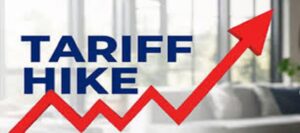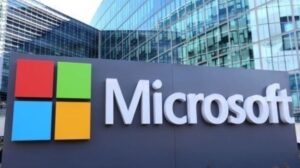Telecom
NCC Slams N647m Fines on GSM Operators over Poor Service
Nigeria Communications Commission (NCC) on Monday slammed a total fine of N647.5 million on Airtel, Globacom and MTN Nigeria, the three major GSM service providers for failing to meet the Key Performance Indicators (KPIs) for quality of service in the month of January 2014.
In other words, the services they provided for the period fell below expectation with dropped calls; and incomplete calls.
NCC has also barred Airtel, Globacom and MTN Nigeria from selling SIM Cards.
According to Reuben Muoka, head, Media & Public Relations (NCC), consequently, the three companies have been barred from selling SIM Cards with effect from March 1 to 31, and are also barred from all promotions in their networks until they improve on the failed KPIs for which they are sanctioned.
The details of the sanction showed that Airtel Network Ltd, and MTN Nigeria Communications Ltd, are to pay a fine of N185 Million each while Globacom Ltd is liable to the tune of N277,500.
In addition, each of the operators must pay the sanction amount on or before March 7, 2014, failure upon which each will be liable to pay N2,500,000 per day as long as the contravention persists.
He said that the sanctions, which were communicated to the three operators in a letter signed by Dr. Eugene Juwah, executive vice chairman of the Commission, explained that the Commission will carry out an audit of the three companies on March 1, 2014 and also on March 31st, 2014, to ensure that no sale of new SIM Cards takes place in any of the three networks within the period.
The letter made reference to an earlier directive of December 10, 2014, which warned the operators that “if the Quality of Service does not improve by 31st December, 2013, the Commission will be compelled to direct operators to, among others, suspend the activation of new SIMs and subscribers until such an operator can prove that it has met the Key Performance Indicators specified in the Regulations”.
According to Dr. Juwah, “The Commission after careful collation of statistics from the Network Operating Centres, NOC, of all major networks operators for the month of January 2014, has concluded that the service provided by some of the operators during the period fell below the Key Performance Indicators published by the Commission in the Quality of Service Regulations, as amended”.
Details of the sanction also indicated that Airtel failed on Call Setup Success Rate, CSSR, and SDCONG, while MTN failed on Call Setup Success Rate , CSSR and Drop Call Rate, DCR. On its part, Globacom failed on Call Setup Success Rate, CSSR, Drop Call Rate, DCR, and SDCONG.
The Key highlights of the sanction are that the concerned operators must adhere to the following conditions: 1. Payment of the fines shall be on or before March 7, 2014.
2. Failure to settle the said amount within the stipulated period, the operators shall continue to be liable to pay the sum of N2,500,000 ( Two Million, Five Hundred Thousand Naira Only) per day for as long as the contravention persist.
3. To stop the sale of new SIM Cards throughout the month of March 2014, with effect from March 1 to 31, 2014.
4. The Service Providers shall not churn or delete inactive or ( None revenue generating SIMs) from their networks during the period of March 1 to 31, 2014.
5. The Service Providers shall not supply new SIM Cards from their warehouses or other sources to its Dealers or third parties throughout the period from March 1-31, 2014.
6. The Service Providers shall stop all promotions until the KPIs which have been identified in their respective networks are positively addressed.
The directive further warned that “any deviation or alteration of provisioning pattern ( in terms of average daily number of provisioning) in the remaining days of February 2014 compared to the regular provisioning rates by the concerned service providers shall be construed as a breach to the Direction.
Telecom
Nigeria Has World’s Most Affordable Data Costs – GSMA
Nigeria has an average data cost of $0.38 per gigabyte, making her the most affordable countries globally and one of the cheapest in Africa for mobile data services.

United States averages $6 per gigabyte and South Africa with $1.77 per gigabyte rank the highest globally and in Africa respectively.
According to the GSMA, Nigerian data costs, as a percentage of Gross National Income (GNI) per capita, are among the lowest across Africa.
The reports by the body lends weight to telecom operators advocacy for tariff adjustments to address economic pressures threatening the sector’s sustainability.
The GSMA report, titled “The Role of Mobile Technology in Driving the Digital Economy in Nigeria,” highlighted Nigeria’s competitive data pricing, which is significantly lower than other African nations, such as Kenya ($0.59 per gigabyte), Ethiopia ($0.68 per gigabyte), and South Africa ($1.77 per gigabyte).
By contrast, the United States averages $6 per gigabyte, underscoring Nigeria’s advantage in offering cost-effective connectivity.
The cost of mobile data in Africa varies greatly by country and region.
Data costs can refer to the cost of mobile data or the cost of acquiring, maintaining, and using business data.
In 2023, the average cost of 1 GB of mobile data in Sub-Saharan Africa was $3.31, while in Northern Africa it was $0.86.
Telecommunications operators in Nigeria have been requesting some policy changes as well as tariff rebalancing to enable them deliver support to the Government’s digital economy objectives.
They have called for the simplification and improvement of the Right of Way (RoW) charging and administration process, harmonised across the country
According to them, all government authorities (at national and sub-national levels) should apply the national maximum RoW fee of N145 per/LSQM adopted by the National Economic Council (NEC) for the deployment of fibre across all states in Nigeria.
There should be a single point of contact in each state for the RoW application process while the duration for the approval process should be digitalised and limited to a maximum of one month.
Simplification and reduction of the tax burden on the mobile sector
On tariff, recall that the Association of Licensed Telecommunications Operators of Nigeria (ALTON) and the Association of Telecommunications Companies of Nigeria (ATCON) had urged the Nigerian Communications Commission (NCC) to consider reviewing tariffs upward to address rising operational costs.
Nodding in agreement, Bismarck Rewane, chief executive officer, Financial Derivatives, said the proposed tariff hike by telecommunications will help reduce inflation in the country.
He said it would help to reduce inflation because it increases productivity, stressing that the price of MTN shares went up by 10% to 220.
Rewane reiterated that investors had already factored that in, adding that they are expecting a lot of good goodies.
“But more important to think about is the fact that because of an increase in tariff and an increase in investment to make the industry sustainable, they’re going to see an increase in productivity, not directly but indirectly.
“Any increase in productivity and output is likely to allow inflation to moderate, which is the goal. So, we heard from the policymaker, Bosun Tijani, who was very clear that we want a sustainable sector. But we also heard from the regulator saying that we will hold these guys to quality of service.
“We also heard from the operators, MTN that they are all revving up. So in all, there are economic benefits because of increased output and productivity. Two, policymakers are aligned because they want this to lead to a moderation in inflation,” he added.
He further said that it was not a bad deal and re-echoed the minister’s comment that the tariff hike will not be 100 per cent.
“Will they get 100%? No, they will definitely not. We suspect that we are going to likely see something between 40 and 50% which is fair after so many years of static changes,” Rewane added.
Telecom
Bismarck, Economist Claims Planned Tariff Hike by Telcos Will Reduce Inflation
Bismarck Rewane, chief executive officer, Financial Derivatives, has said the proposed tariff hike by telecommunications will help reduce inflation in the country.

Rewane made this statement on Channels Television’s Business Morning on Thursday.
Recall that Association of Licensed Telecommunications Operators of Nigeria (ALTON) and the Association of Telecommunications Companies of Nigeria (ATCON) had urged the Nigerian Communications Commission (NCC) to consider reviewing tariffs upward to address rising operational costs.
On January 3, Karl Toriola, chief executive officer (CEO), MTN Nigeria, said telcos want a 100 percent tariff hike.
According to Rewane, who previously supported the plans for a tariff hike, the move will make the sector more sustainable.
He said it would help to reduce inflation because it increases productivity, stressing that the price of MTN shares went up by 10% to 220.
Rewane reiterated that investors had already factored that in, adding that they are expecting a lot of good goodies.
“But more important to think about is the fact that because of an increase in tariff and an increase in investment to make the industry sustainable, they’re going to see an increase in productivity, not directly but indirectly.
“Any increase in productivity and output is likely to allow inflation to moderate, which is the goal. So, we heard from the policymaker Bosun Tijani, who was very clear that we want a sustainable sector. But we also heard from the regulator saying that we will hold these guys to quality of service.
“We also heard from the operators, MTN that they are all revving up. So in all, there are economic benefits because of increased output and productivity. Two, policymakers are aligned because they want this to lead to a moderation in inflation,” he added.
He further said that it was not a bad deal and re-echoed the minister’s comment that the tariff hike will not be 100 per cent.
“Will they get 100%? No, they will definitely not. We suspect that we are going to likely see something between 40 and 50% which is fair after so many years of static changes,” Rewane added.
Telecom
Microsoft to Spend $80Bn on AI Data Centres
In a bid to build AI-enabled data centres, Brad Smith, vice chair and president, Microsoft has disclosed the company’s plan to spend approximately $80 billion in its current financial year (to end in June), with more than half of that investment designated for the US.

Smith in a blog post, explained the tech giant plans to use the data centres “to train AI models and deploy AI and cloud-based applications around the world.”
Smith welcomed U.S. President Donald Trump to his second term in office, he cautioned against “heavy-handed regulations” that could slow down the private sector.
“The most important US public-policy priority should be to ensure that the US private sector can continue to advance with the wind at its back,” Smith stated.
He further explained that the U.S. “needs a pragmatic export control policy that balances strong security protection for AI components in trusted data centers with the ability for U.S. companies to expand rapidly and provide a reliable source of supply to the many countries that are American allies and friends.”
Stating that the US is well-positioned to flourish in its development of AI due to solid technology development and an innovative private sector.
“If the Trump Administration can develop a strong national AI talent strategy and use AI to make the government more effective and efficient, it will put the country on a promising path.”
He stated the U.S. is in a strong position to “win the essential race with China by advancing international adoption of American AI.”
Smith further claimed U.S. “products are more trusted than their Chinese counterparts, and our private sector is unmatched in its ability to invest in infrastructure around the world.”

 E-Financial2 days ago
E-Financial2 days agoSEC to Strengthen Borrowing Framework for Governments, Corporates

 E-Business2 days ago
E-Business2 days agoKaspersky Reviews Main Business Headache Related to IT Security

 E-Business3 days ago
E-Business3 days agoFirm Explores 2025 Potential IT Outage and Supply Chain Risk Scenarios

 Telecom2 days ago
Telecom2 days agoBismarck, Economist Claims Planned Tariff Hike by Telcos Will Reduce Inflation

 E-Financial3 days ago
E-Financial3 days agoGTCO Completes First Phase of Capital Raise Initiative with N209bn

 Telecom3 days ago
Telecom3 days agoCall, Data Tariffs Will Increase – Nigerian Minister, Tijani Declares

 E-Business2 days ago
E-Business2 days agoFG to Add Iris Biometrics to Digital ID for more Inclusion

 Telecom3 days ago
Telecom3 days agoTD Africa Empowers Nigerians with Sustainable Energy Solutions





















